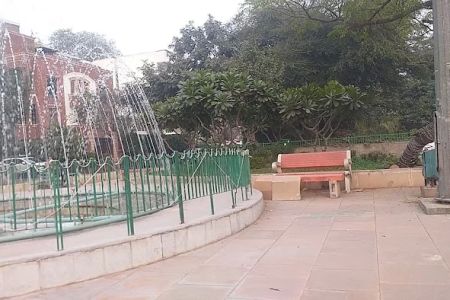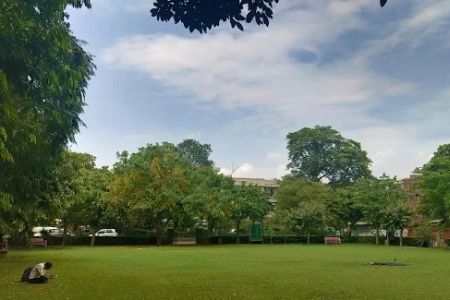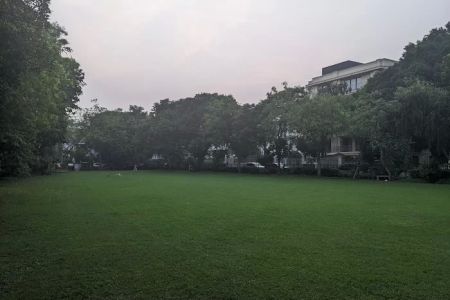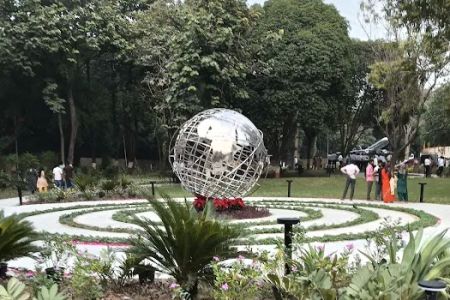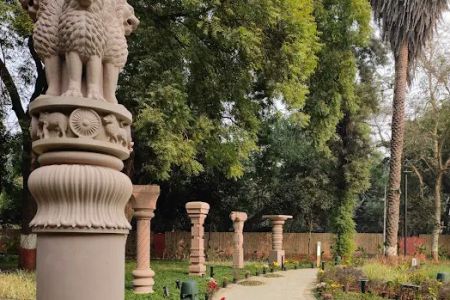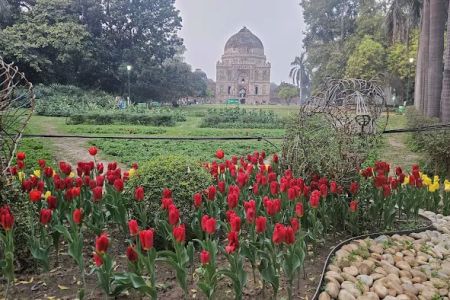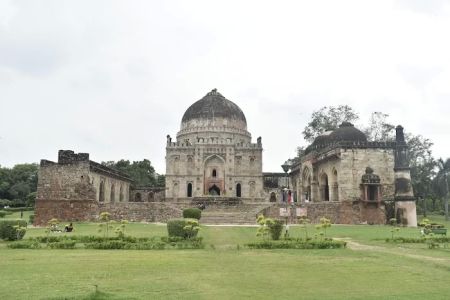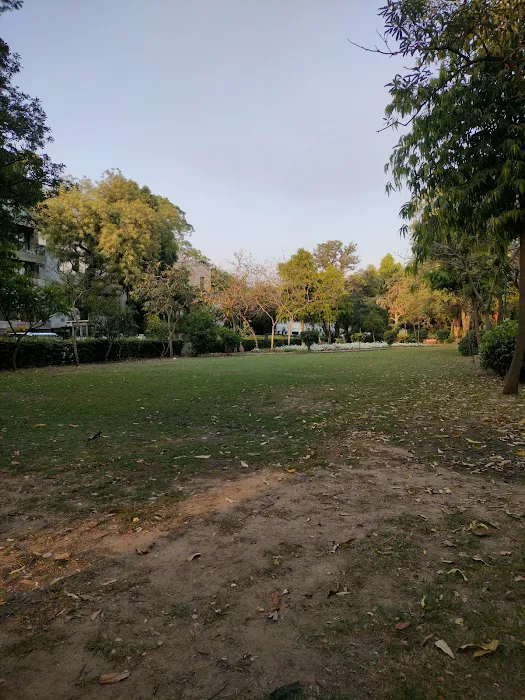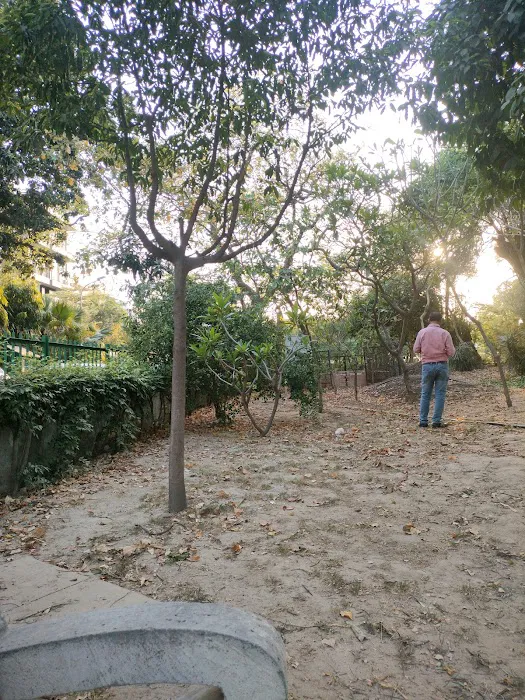In a rapidly developing metropolis like Delhi, managing urban waste efficiently and sustainably is paramount. While we often think of "gardens" as places of leisure and beauty, there are vital, less visible "gardens" that serve a crucial environmental purpose. The Compost Pit in Jor Bagh is one such initiative, representing a cornerstone of Delhi's commitment to sustainable waste management and fostering greener communities. It’s not a decorative garden in the traditional sense, but rather a functional green infrastructure that plays a significant role in making Delhi a more environmentally responsible city.
The Compost Pit in Jor Bagh is part of a larger civic effort, particularly within the New Delhi Municipal Council (NDMC) area, to transform colonies into "zero-waste" zones. This initiative focuses on the scientific segregation of waste at its source and the conversion of organic (wet) waste into valuable compost. For Delhiites, especially those residing in areas like Jor Bagh, understanding and supporting such initiatives is crucial, as they directly contribute to reducing the burden on landfill sites, mitigating pollution, and enriching the city's green spaces with natural fertilizer. It’s a quiet but powerful testament to the city’s evolving approach to environmental stewardship and a more sustainable future.
Location and Accessibility
The Compost Pit in Jor Bagh is located at H6Q8+48X, Jor Bagh, New Delhi, Delhi 110003, India. This address places it within the prestigious and well-established Jor Bagh locality, an area known for its lush greenery and serene environment in Central Delhi. While a specific public-facing entrance for a compost pit is not typically designated, its location within a residential area implies strategic placement for local waste collection and processing.
Being situated in Jor Bagh, the facility benefits from the excellent connectivity that defines this part of Delhi. The Jor Bagh Metro Station on the Yellow Line is a major transit point within easy reach, making the general area highly accessible. This metro line connects various key parts of Delhi, facilitating transportation for municipal workers and possibly for local residents involved in waste segregation initiatives. Additionally, Jor Bagh is well-served by a network of local roads and bus routes, ensuring smooth logistical operations for waste collection. The strategic placement of such pits within residential areas like Jor Bagh is crucial for the success of localized waste management programs, reducing the need for long-distance transport of organic waste and promoting a more localized, circular economy approach to waste. For locals, while not a place to visit for leisure, its presence underscores the civic efforts in their immediate neighborhood.
Services Offered
The "services" offered by the Compost Pit in Jor Bagh are primarily environmental and community-focused, rather than direct commercial offerings to the public. This facility is a vital component of local waste management and sustainability efforts.
Organic Waste Processing: The core service is the conversion of segregated organic (wet) waste, typically collected from households and green waste from parks, into nutrient-rich compost.
Landfill Burden Reduction: By diverting organic waste from landfills, the compost pit significantly reduces the volume of garbage that needs to be disposed of, contributing to a cleaner and healthier urban environment.
Production of Natural Fertilizer: The high-quality compost produced serves as a natural, chemical-free fertilizer that can be used to nourish local parks, gardens, and green spaces, fostering healthier plant growth.
Support for Zero-Waste Initiatives: This pit is an integral part of the NDMC's "zero-waste colony" model, promoting sustainable practices at the community level by encouraging residents to segregate their wet waste.
Environmental Sustainability: It contributes directly to environmental sustainability by promoting circular economy principles, reducing greenhouse gas emissions (from decomposing waste in landfills), and enhancing soil health.
Features / Highlights
The Compost Pit in Jor Bagh, while not a conventional tourist attraction, has several significant "features" and "highlights" that underscore its importance to urban sustainability and the local community:
Key to Zero-Waste Colonies: It is a fundamental element in the NDMC's ambitious plan to make several central Delhi localities, including Jor Bagh, "zero-waste colonies." This highlights its role in a pioneering civic initiative.
Sustainable Waste Management Model: The pit exemplifies a successful model of decentralized waste management, where wet waste is processed locally, reducing transport costs and environmental impact.
Resource Recovery: It transforms what would otherwise be waste into a valuable resource – compost – which is then used to enrich the very green spaces that residents enjoy, creating a sustainable loop.
Community Involvement: The success of such a compost pit relies heavily on source segregation by residents. Its presence signifies active community participation in environmental efforts, with households separating wet and dry waste.
Environmental Benefit: By diverting organic waste from landfills, it significantly reduces methane gas emissions (a potent greenhouse gas) and leachate, contributing to cleaner air and soil in Delhi.
Direct Benefit to Green Spaces: The compost produced directly benefits the local parks and gardens, ensuring that the city's green cover remains lush and healthy through organic means, rather than relying solely on chemical fertilizers.
These features highlight that the Compost Pit, though unassuming, is a critical piece of modern urban infrastructure for a cleaner, greener Delhi.
Promotions or Special Offers
As a municipal infrastructure facility dedicated to waste management and environmental sustainability, the Compost Pit in Jor Bagh does not offer "promotions" or "special offers" in the commercial sense. It is a public service and resource.
However, the "special offers" it provides are invaluable and contribute to the collective well-being of the community:
Free Waste Processing: Residents of Jor Bagh and designated areas benefit from free collection and processing of their segregated wet waste, turning it into a valuable resource rather than sending it to overflowing landfills.
Access to Organic Compost: While not a retail outlet, the compost produced from these pits is often utilized in local parks and green spaces, offering indirect "access" to rich, organic soil for the enhancement of public gardens.
Cleaner Environment: The most significant "offer" is a cleaner, healthier, and more sustainable local environment. By reducing landfill waste and promoting composting, the pit contributes to cleaner air and soil for all residents.
Educational Opportunity: For Resident Welfare Associations (RWAs) or local schools, the concept of such compost pits presents an educational opportunity to learn about waste segregation and the benefits of composting, promoting environmental awareness among locals.
Any public awareness campaigns or workshops related to waste segregation or composting techniques would typically be organized by the NDMC or associated NGOs. Information about such initiatives would be disseminated through local community channels or civic body announcements.
Contact Information
The Compost Pit in Jor Bagh is an operational facility managed by the New Delhi Municipal Council (NDMC). As such, there is no direct public contact number specifically for the compost pit itself. For any inquiries related to waste management, waste segregation initiatives, or the functioning of such civic facilities in the Jor Bagh area, you should contact the relevant department of the NDMC.
Address:
Compost Pit
H6Q8+48X, Jor Bagh,
New Delhi, Delhi 110003, India
Phone:
For general inquiries, civic complaints, or information regarding waste management services provided by NDMC, it is best to refer to the official contact channels of the New Delhi Municipal Council.
NDMC Citizen's Call Center / Helplines: (Please check the official NDMC website for the most current and specific contact numbers).
The NDMC also typically provides online portals or mobile applications (like the NDMC 311 app) where residents can report issues related to sanitation, waste collection, and environmental initiatives. This ensures that locals have a direct line to the authorities responsible for managing and improving waste disposal and green efforts in their area.
Conclusion: Why the Compost Pit in Jor Bagh is Suitable for Locals
While not a "garden" in the traditional sense of a recreational park, the Compost Pit in Jor Bagh is profoundly suitable and immensely beneficial for the local residents of Delhi. Its importance lies in its critical role within the broader framework of urban sustainability and community well-being.
Firstly, it is a cornerstone of environmental responsibility. For Delhiites concerned about air pollution, landfill burden, and the overall environmental health of their city, the compost pit represents a tangible solution. By actively converting organic waste into valuable compost, it directly reduces the amount of garbage sent to already overflowing landfills, mitigating harmful emissions and promoting a cleaner local environment. This indirect benefit significantly enhances the quality of life for everyone in the vicinity.
Secondly, its very existence promotes and enables sustainable living practices at the grassroots level. The success of such a pit relies heavily on source segregation by residents, encouraging community participation in responsible waste management. This empowers locals to become active participants in creating a "zero-waste colony," fostering a sense of collective ownership and environmental consciousness within the Jor Bagh community.
Moreover, the compost produced from this pit directly enriches Delhi’s precious green spaces. This organic fertilizer nourishes local parks and gardens, ensuring they remain vibrant and healthy. For residents who cherish their green surroundings, the compost pit provides a sustainable, natural solution for maintaining these vital urban oases. It completes a circular economy, where waste from homes contributes to the beauty and health of public spaces.
In essence, the Compost Pit in Jor Bagh is suitable for locals not as a destination for leisure, but as a vital, functional "garden" that quietly but powerfully underpins a greener, healthier, and more sustainable future for Delhi. It’s a testament to responsible civic management and a symbol of how communities can collectively contribute to a cleaner environment, making it an indispensable part of modern urban living in the capital.
